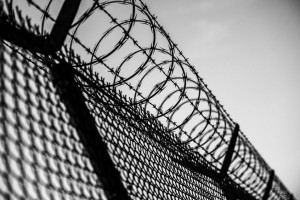Nonbelievers behind Bars: Does the US Prison System Privilege Religious Inmates?

When religious individuals accuse atheists of having no morals, one fact atheists frequently cite is the miniscule percentage of atheists in US prisons. However, getting accurate, reliable data on the religious identities of US federal prisoners is often difficult because the Federal Bureau of Prisons does not release that information unless someone requests it through the Freedom of Information Act (FOIA). A few weeks ago, the editor of the Friendly Atheist blog, Hemant Mehta, did just that, and he published the data he received.
Unsurprisingly, at 0.10 percent, atheism still represents a tiny percentage of the religious identities of inmates in federal prison, though that number has risen slightly since 2013, when atheists made up 0.07 percent of the federal prison population. One might speculate that this increase is related to the increase in the percentage of the US population in general that identifies as atheist. According to the Pew Research Center’s Religious Landscape Survey, the percentage of people in the United States who identify as atheists has jumped from 1.6 percent in 2012 to 3.1 percent in 2014. However, Mehta points out that the percentage of atheists in prison is significantly lower than the percentage of atheists in the general population.
Though atheists are clearly a minority in the US federal prison system, they still deserve the same rights and privileges given to nonreligious prisoners. Humanists have long been advocates for humane treatment of all prisoners in order to preserve their basic dignity and human rights, regardless of their crimes, and this compassion should certainly extend to atheist prisoners. Unfortunately, just as religion—evangelical Christianity in particular—is often privileged in US society, religious inmates are often given special treatment behind bars as well.
The number of individuals who lack a belief in a higher power may be greater than the data suggests, since the numbers depend on individuals’ self-identification, and there are myriad reasons why an inmate may not want to identify as an atheist. An article by sociology professor Harry R. Dammer at the University of Scranton details the perceptions of religiosity by both correctional officers and inmates and suggests that both prison staff and the prisoners themselves perceive religious inmates more positively, which often leads to preferential treatment. Proselytizing programs such as Prison Fellowship (founded by Chuck Colson, a member of the Nixon administration involved in the Watergate scandal) incentivize prisoners with educational and re-entry programs that they claim will reduce recidivism, despite evidenced failure to actually assist former inmates in staying out of prison. Still, these can be powerfully motivating factors for inmates to identify with a particular faith tradition while serving time.
The failure of the US federal prison system to permit inmates to identify as humanists and organize study groups and meetings is also evidence of the marginalization faced by nontheists behind bars. Fortunately, thanks to the American Humanist Association’s Appignani Humanist Legal Center, the Bureau of Prisons will now grant prisoners these rights, and seeing the data on how many prisoners identify as humanists and atheists in the future will be interesting, as inmates who formerly identified as atheists may now choose to identify as humanists.
Atheists and humanists may be minorities in prisons, but they still deserve the same treatment as theistic inmates. Of course, humanists’ first priority should be to strengthen the education system and other programs that can prevent individuals from ending up in prison in the first place while opposing the War on Drugs and other initiatives that severely punish nonviolent offenders. But once individuals have entered the prison system, they still deserve rights and dignity. For this reason, humanists should be vigilant that all prisoners, including atheists and humanists, are treated fairly and equally.
